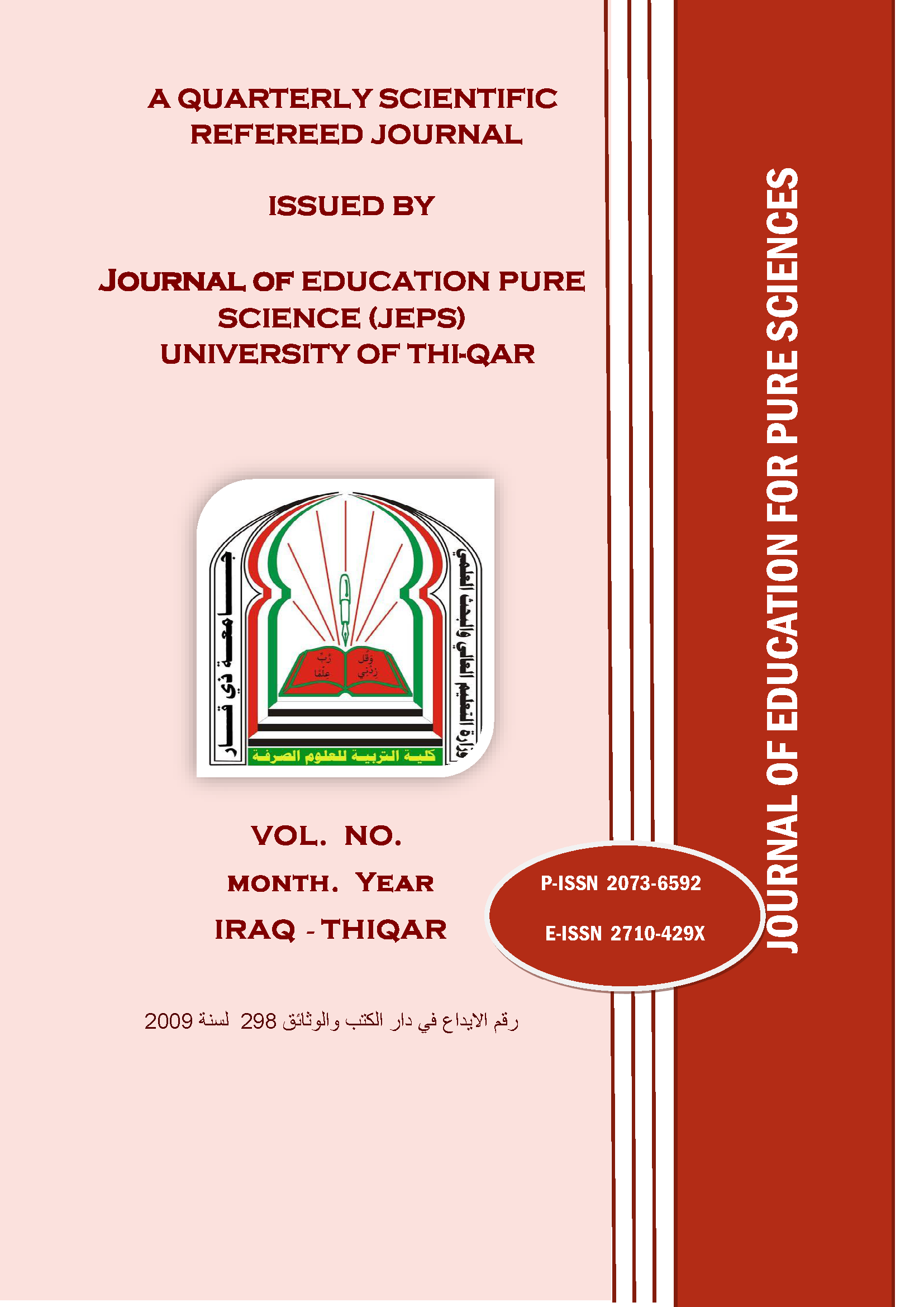The Effect of Atmospheric Organic Carbon on Precipitation Formation in Southern Iraq: Case Study
DOI:
https://doi.org/10.32792/jeps.v14i3.537Keywords:
Precipitation, Organic Carbon, Cloud Top Temperature, Total PrecipitableWater.Abstract
The aerosols play a main role in precipitation formation in the atmosphere. Organic Carbon (OC) is a must-imported aerosol because it is considered a cloud condensation nuclear CCN. This work dealt with the relationship between Organic Carbon (OC) and many variables that affect precipitation formation in South Iraq (Basra and AL-Muthana) including Cloud Top Temb Cloud Top Temperature CTT, Total PrecipitableWater TPW, and Precipitation. The cases selected are 14 – 15 Nov. 2018 and 26 – 29 Jan. 2019 to test the relationship between variables. Data obtained from retrospective analysis for research and applications, version 2 (MERRA-2). Including OC, total Precipitablewater (TPW), and precipitation amount of 3 hours. The times are fixed according to the cases. The cloud top temperature (CTT) was obtained by the infrared satellite images provided by the European Space Agency, using a group of satellites. The result indicates a strong effect of OC on the cloud depth and the TPW when finally increases the precipitation amount.
Downloads
Published
Issue
Section
License
Copyright (c) 2024 Journal of Education for Pure Science- University of Thi-Qar

This work is licensed under a Creative Commons Attribution-NonCommercial-NoDerivatives 4.0 International License.
The Authors understand that, the copyright of the articles shall be assigned to Journal of education for Pure Science (JEPS), University of Thi-Qar as publisher of the journal.
Copyright encompasses exclusive rights to reproduce and deliver the article in all form and media, including reprints, photographs, microfilms and any other similar reproductions, as well as translations. The reproduction of any part of this journal, its storage in databases and its transmission by any form or media, such as electronic, electrostatic and mechanical copies, photocopies, recordings, magnetic media, etc. , will be allowed only with a written permission from Journal of education for Pure Science (JEPS), University of Thi-Qar.
Journal of education for Pure Science (JEPS), University of Thi-Qar, the Editors and the Advisory International Editorial Board make every effort to ensure that no wrong or misleading data, opinions or statements be published in the journal. In any way, the contents of the articles and advertisements published in the Journal of education for Pure Science (JEPS), University of Thi-Qar are sole and exclusive responsibility of their respective authors and advertisers.





